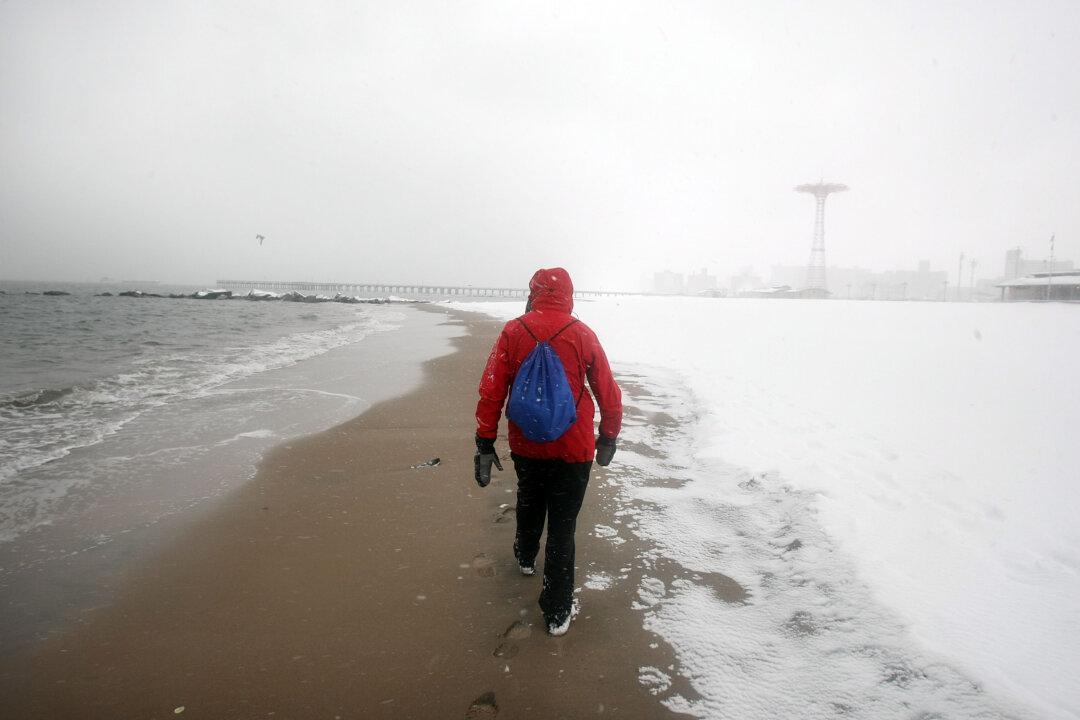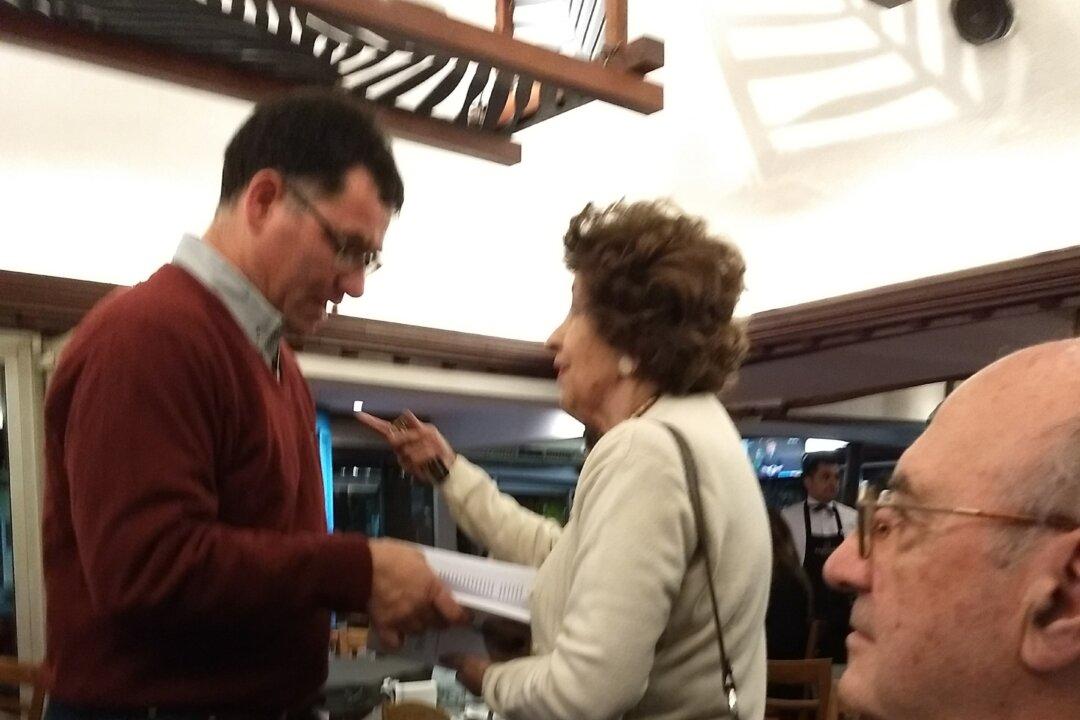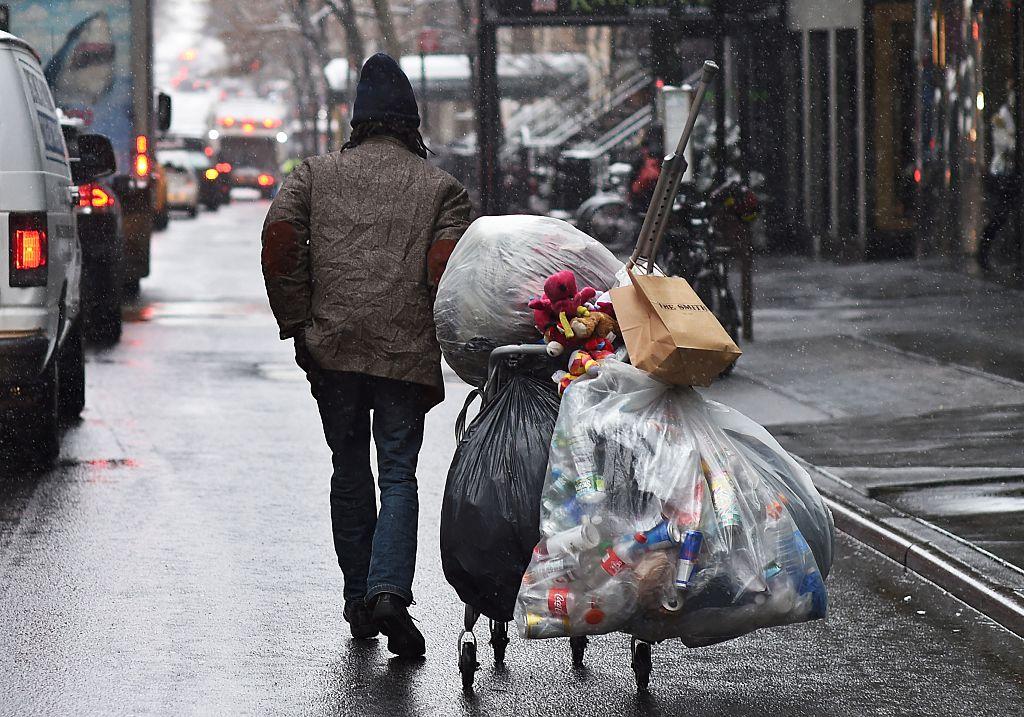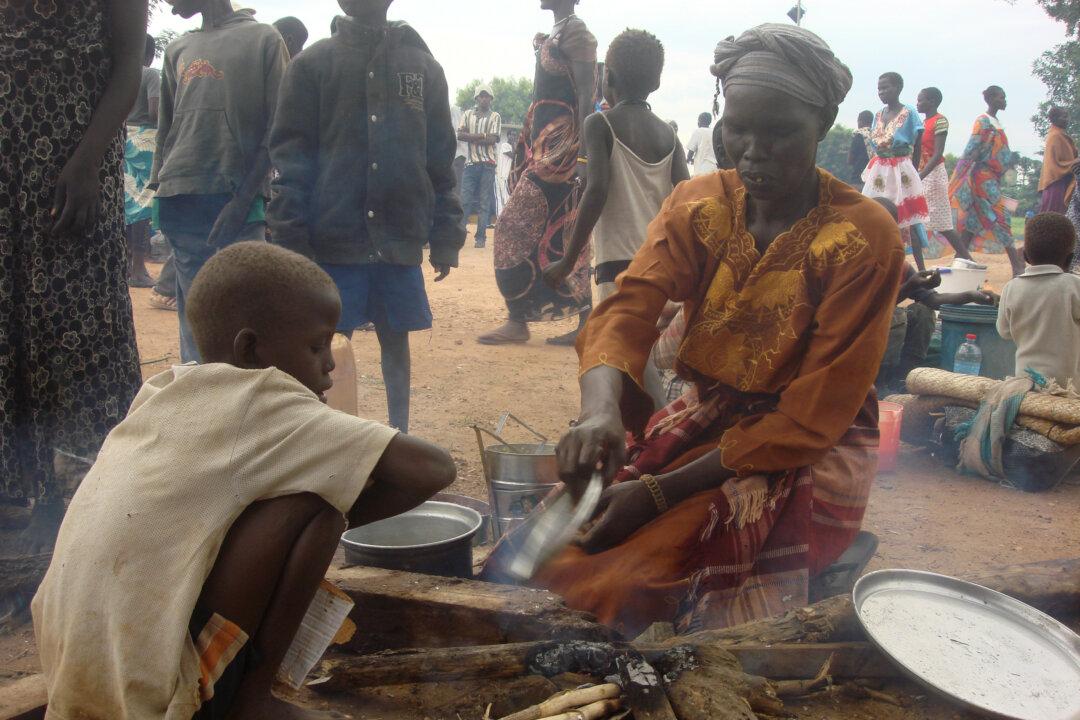It was a cold and pleasant winter day and it was predicted to snow at around 12 noon. I thought it would be nice to see the snow coming down on the ocean so I decided to go to Coney Island, walk on the promenade, see the snowfall and then go to lunch at one of the many Russian restaurants in the area.
I took the subway to Coney Island and 45 minute later I was sitting in front of the sea, patiently waiting for the snow. A group of young men, probably in their early 30s were playing volleyball in the sand. They were shouting at each other in Russian. I thought to myself, “You have to be Russian to be playing in the sand with this temperature!”
Soon afterwards a beautiful young woman came and sat next to me. There were only a few people walking briskly along the promenade, nobody else was sitting nearby and I thought this proximity a bit unusual. However, a few minutes later I saw her waving and shouting to one of the men playing in front of us whom, she explained later, was her husband.
I asked her if she was Russian. She said they all were and that she was from Moscow. I told her that I had been there a couple of years before and that I had liked it a lot, although I had liked San Petersburg even more.
“Have you ever thought of going back to live in Russia?” I asked her. “No,” she said, “Russians drink too much. I don’t like that.” By that time it was getting colder and the wind made sitting there quite unpleasant, but I had made up my mind to wait until the first snowflakes would fall on the water. Besides, talking to this beautiful woman had made it more bearable.
“Do you like Russian food?” she asked me. “Of course,” I said. “I love borscht and, as a matter of fact, a couple of days ago I cooked some borscht myself, since my wife is away. I opened a can of beets, added some boiled carrots and cabbage, boiled it a bit longer, and served it with some sour cream on top. I had some Russian rye bread and had a most satisfying meal.”
“You did what?” she asked me, with an alarmed look on her face. I started repeating the steps when, with some impatience in her voice said, “Stop. You should never, ever, use canned beets for borscht. You could be sent to Siberia for doing that in Russia,” and added smiling, “Having borscht with canned beets is as Russian as having an American breakfast with vegetarian bacon.”
Occasionally she stopped our conversation to wave at her husband, who continued his game with his friends as if they were playing under a warm and pleasant sun. All this talk of food was making me hungry, so I was getting ready to leave when she said to me, “I'll give you my recipe for borscht, but you have to promise me that you will never again use canned beets.” I assured her that I would not.
“First you boil beef and pork meat until they are well cooked so that they can be easily shredded. After you shred the meat boil the beets in that same water. When they are ready you should cut the beets in small pieces and reserve a couple of them until the end. Then add a couple of cooked carrots and potatoes which you have slightly fried before. After letting all of it boil together for a few minutes add a good amount of cabbage and let it boil until cooked but crisp. When the soup is ready mash the two beets you had kept in reserve since that will give the soup a nice, strong color.”
By that time the snow had started to fall down so heavily that after saying goodbye to her I left hastily towards the avenue nearby. I was practically running, afraid of being unable to find my way back when she yelled at me, “And don’t forget to add some garlic at the end!”
César Chelala, M.D., Ph.D., is a global public health consultant for several U.N. and other international agencies. He has carried out health-related missions in 50 countries worldwide. He lives in New York and writes extensively on human rights and foreign policy issues, and is the recipient of awards from Overseas Press Club of America, ADEPA, and Chaski, and recently received the Cedar of Lebanon Gold Medal. He is also the author of several U.N. official publications on health issues.




